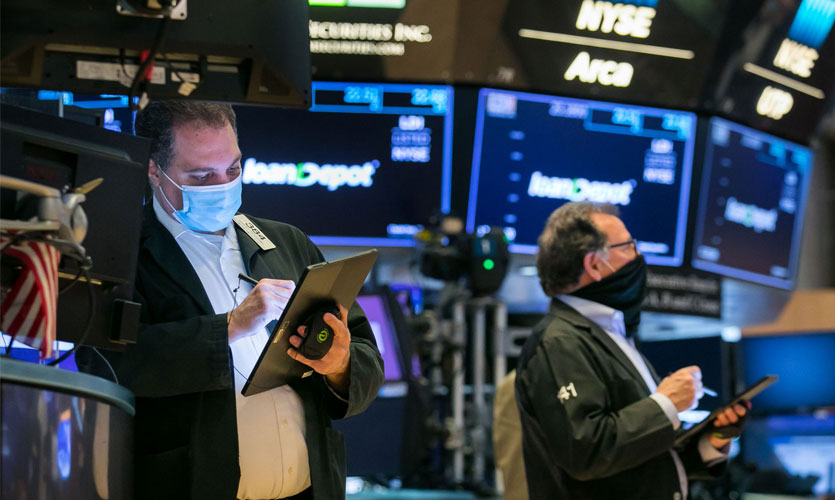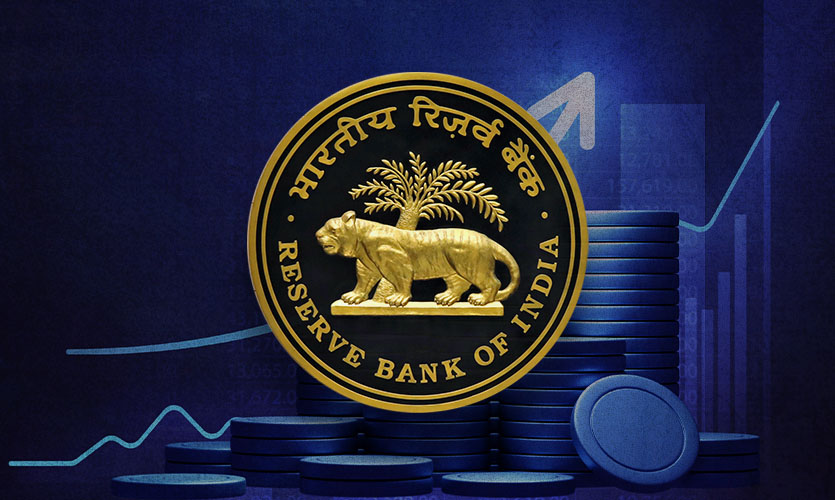Global markets began the week on a sour note, but it stayed on track for the fifth straight month of gains as investors maintained their trust in a solid economic rebound from the pandemic. Wall Street’s Nasdaq Composite reached fresh highs, while government bonds surged as investors shrugged off concerns over the Federal Reserve prematurely tightening the US’ monetary policy.
The Nasdaq, which is heavily weighted toward technology, ended up over 1 percent at a new all-time high, erasing last Friday’s losses. Gains accelerated as fears about rising borrowing rates weighing on the values of high-growth firms such as Apple and Facebook dissipated. The wider S&P 500 index gained 0.2 percent after finishing its best week since February last week while the Dow Jones Industrial Average was up 0.2 percent as well.
Core government debt has also risen on both sides of the Atlantic, with the 10-year US Treasury note yielding 1.48 percent, down about 0.05 percentage points. The comparable German Bund fell 0.04 percentage points to minus 0.19, and the UK Gilts touched 0.72 percent after falling 0.06 percent on Monday.
Fed policymakers this month pushed ahead of their forecasts for the first post-pandemic US interest rate hike by a year to 2023, sparking gyrations in the stock and bond markets as well as the currency. However, investors were relieved when Fed Chair Jerome Powell vowed not to raise interest rates “pre-emptively,” and statistics revealed that month-on-month US inflation in May was somewhat lower than what experts had predicted.
Treasury rates have fallen after racing up in the first quarter of the year when investors gambled heavily on the Fed’s aggressive measures. As a result, fund managers sold out of IT companies and shifted their emphasis to so-called value sectors such as industrial firms and banks, which are expected to benefit from an economic rebound following the epidemic.
“In terms of value and growth styles, it now makes sense to hold an even balance,” said Nadège Dufossé, head of cross-asset strategy at fund manager Candriam. “We think central banks will remain very cautious about removing accommodation,” Dufossé added.
This week’s attention will be on the monthly US non-farm payrolls data for June, which is due out on July 2 and is projected to show a rise of almost 700,000 jobs, up from 559,000 the previous month.
“This report will be the key focus point,” said Jeremy Gatto, multi-asset fund manager at Unigestion. After Fed policymakers at their previous meeting stressed a commitment to pursuing full employment, “markets are going to place more emphasis on employment data,” Gatto added.
European stock markets began higher this week on Tuesday, but Asian markets fell. London and Frankfurt rose, while Shanghai, Tokyo, and Hong Kong fell.
Investors are torn between excitement about a global economic rebound fueled by coronavirus vaccines and concern that central banks would be under pressure to withdraw support to temper growing inflation pressures.
On Tuesday, the World Bank upped its projection for China’s economic growth this year to 8.5 percent, up from 8.1 percent in April. According to the Washington-based lender, full recovery will need improvements in coronavirus vaccines.
The London FTSE 100 rose 0.3 percent to 7,095.06, while the Frankfurt DAX rose 0.6 percent to 15,642.81. The Paris CAC 40 rose 0.3 percent to 6,580.65.
In Asia, the Shanghai Composite Index lost 0.9 percent to 3,573.18, while Tokyo’s Nikkei 225 fell 0.8 percent to 28,812.61.
The Hang Seng in Hong Kong fell by 1 percent to 28,983.89 after the Chinese enclave barred airline flights from the UK beginning last Thursday, in a fresh effort to prevent the spread of the new Delta coronavirus strain.
Seoul’s Kospi fell 0.5 percent to 3,286.68, while Sydney’s S&P-ASX 200 fell less than 0.1 percent to 7,301.20.
The Sensex in India fell less than 0.1 percent to 52,691.47. Singapore fell behind New Zealand, Bangkok, and Jakarta.
Read more: India’s Green Transition And The Way Forward
Tourism-related businesses in Europe lagged behind the rest of the market when Spain, Portugal, and Malta announced their intentions to impose additional regulations on British tourists. The continent’s travel and leisure sector fell by 4.4 percent on Monday, trailing the broader Stoxx 600 index, which was down 0.6 percent. In tourism-dependent Spain, the Ibex 35 index fell 2 percent.
On the New York Mercantile Exchange, benchmark US crude fell 2 cents to $72.89 a barrel but stayed around its peak since April 2019. On Monday, the price slid $1.14 to $72.91 per contract. Brent crude, the benchmark for international oil prices, fell 4 cents to $74.10 a barrel in London.
The dollar rose to 111.24 yen on Thursday, and the euro fell from $1.1923 to $0.84.










